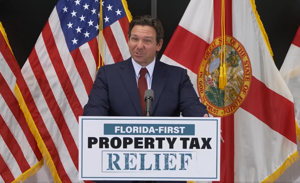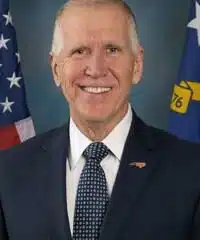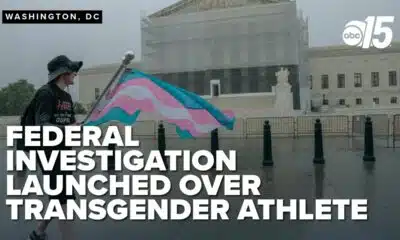(The Center Square) – Most U.S. voters oppose having data centers built in their community and even more oppose the data centers if tax incentives are awarded to have them built, according to a poll released Wednesday morning by Libertas Network.
Overton Insights asked 1,200 registered voters the questions between June 23-26 on behalf of Libertas, which says it focuses on family education and policy reform as it looks to “change hearts, minds and laws to create a freer future.”
Libertas had Overton Insights ask the data center questions upon suggestion from The Center Square.
The poll asked voters specifically if they supported or opposed building new data centers for artificial intelligence in their community with 46% of respondents strongly or somewhat opposing the prospect, 36% strongly or somewhat supporting and 18% uncertain.
Of those that supported building data centers in their community, 69% still supported the idea if tax subsidies or incentives were involved to bring the data centers while 23% or those initially supportive would oppose the idea if those tax breaks were involved.
Data center projects have popped up across the country in recent years with many of those proposals including tax breaks.
The data centers are used to create the computing power for AI and to store the large amounts of information needed for those technologies but the Incentives are often opposed because, despite the large amount of money spent on the buildings, they do not require much staff and they take a large amount of energy.
The average American’s energy bill could increase from 25% to 70% in the next 10 years without intervention from policymakers, according to Washington, D.C.-based think tank the Jack Kemp Foundation.
A least 10 states are currently losing $100 million or more in taxes from data centers, according to an April report from Good Jobs First.
Data centers often require politicians to sign non-disclosure agreements during the proposal process, including keeping the name of the technology company involved along with the details of a project secret.
The secrecy occurred during the process of building a recent Indianapolis data center, according to WFYI, while the names have leaked of developers involved in several Wisconsin data center projects where state lawmakers are asking to create a data center exception to state laws on property tax captures at the sites to lure the projects to the state.
“These data centers are so big and so valuable and such a prize for a community that (state laws capping TIFs) really creates a problem,” said Wisconsin Sen. John Jagler, R-Watertown.
Virginia currently has a backlog of data center projects as they complete interconnection studies to ensure they can safely attach to the energy grid.
Projects needing more than 50 megawatts of power often require transmission-level access, which adds federal oversight from PJM, the regional grid operator for Virginia and 12 other states.
This article largely reports on the opposition of U.S. voters to data centers in their communities, particularly when tax incentives are involved, and highlights concerns over energy consumption, tax revenue loss, and secrecy in data center deals. While it maintains a mostly factual tone, the choice to emphasize potential downsides—such as rising energy costs, tax breaks controversy, and non-disclosure agreements—reflects a viewpoint often associated with conservative or center-right skepticism of government incentives and large corporate projects. The article cites sources and lawmakers who question the benefits of data centers, but it does not overtly promote a partisan agenda, resulting in a center-right leaning report grounded in reported concerns.


















































